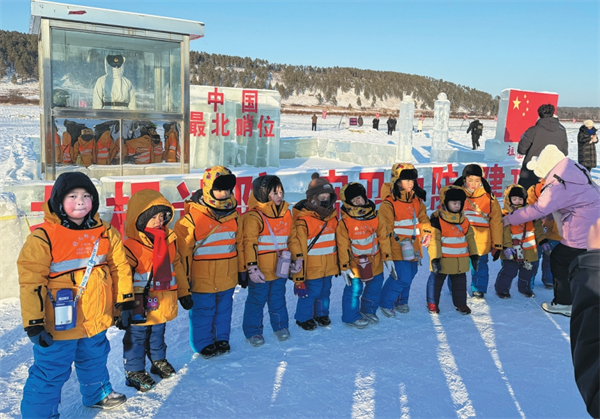Home>Harbin Today
Crime scene investigator emphasizes faith in Party
Updated : 2021-07-28
By ( China Daily )
Cui, 87, a criminal investigator from the Heilongjiang Provincial Department of Public Security, was awarded the July 1 Medal for outstanding Party members last month in recognition of his contribution to the country.
The medal, the highest honor given by the Communist Party of China Central Committee, was conferred for the first time this year as part of the celebrations of the centenary of the founding of the CPC.
Born into an impoverished family in Meihekou, Jilin province, in 1934, Cui had a miserable childhood.
His father died when he was four and his mother died two years later. He was brought up by his grandparents.
"My childhood left me memories only of extreme poverty and the turmoil of war," he said. "I was able to continue my studies at junior high school after the founding of New China in 1949. It was also the CPC that gave me the chance to join the military and later become a police officer."
In 1951, Cui enlisted in the Chinese People's Volunteers following the outbreak of the War to Resist US Aggression and Aid Korea in 1950.When it ended in 1953, he joined the Party at the age of 19.
"Without the CPC, there would not be the good life I have now," he said. "I have sole faith in following the Party's command forever."
After retiring from the military in 1955, he was assigned to the Heilongjiang Provincial Department of Public Security and became a criminal investigation officer.
However, because he had only been educated to junior high school level, he encountered lots of difficulties at first.
"I couldn't even write a standard crime scene investigation report," he said. "Thanks to the support of the department, I got the chance to continue my studies."
In 1956, he was admitted to the Criminal Investigation Police University of China to study criminal science and technology.
He also undertook further study at Harbin Medical University and a vocational college to gain more knowledge related to his job in the following years.
"These experiences brought me great progress both in theory and practice," he said. "I decided to devote all my abilities to do my best at my job.
"Trace evidence, including fingerprints, footprints, tool marks, bullet marks and other special marks, is crucially important to detecting criminal cases. There shouldn't be any carelessness during the investigation process."
Cui also kept records of the types of evidence he found each day and developed the habit of taking pictures of bullet marks whenever he participated in the investigation of cases involving guns.
"I have collected thousands of photos, covering almost all the shotguns produced in China," he said.
In December 2000, Cui was invited to Zhengzhou, Henan province, to help investigate a case of robbery and shooting.
"The case was particularly difficult at the time because the offenders carried out the attack with a shotgun, but there was little research on bullet marks made by such weapons," he said. "Since I had studied and mastered this knowledge, I immediately provided the information about the shotgun, which was produced in Hunan province."
The information helped local police catch the offenders and find the shotgun they had used.
Cui officially retired in 1994, but he effectively never left his position and put even more energy into researching trace evidence.
In 1997, during a visit to an international criminal equipment exhibition staged by the Ministry of Public Security, he became aware of the need to innovate when he saw a foreign device that automatically identified bullet marks.
After five years of research with his colleagues, he finally invented a Chinese version of the device that used homegrown technologies and performed at an internationally advanced level.

Harbin ramps up childcare services
A new comprehensive service center for childcare in Harbin is expected to be finished by the end of the year.
-
Talent policies drive enterprise development in Harbin
Harbin's "30 New Talent Policies" represents an iterative upgrade to the talent policy system, helping attract and retain talent to bolster economic and social development.
-
Official website of 2025 Asian Winter Games goes live
Harbin, the host city of the 9th Asian Winter Games, has announced that the official website for the 2025 event has recently gone live.
-
Harbin launches measures to facilitate more foreign trade
In the first three quarters of 2023, the total import and export value of Heilongjiang province's goods trade hit 218.22 billion yuan.





